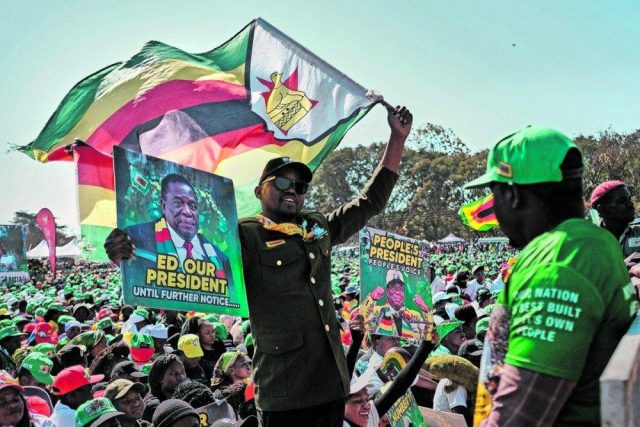

A Human Rights Watch (HRW) report released on Thursday has criticised the Southern African region for failing to hold free and fair elections, saying the region does not protect the rights of its citizens.
The 734-page report describes sinister and fatal attacks on several parliamentary members, political activists and human rights defenders who were kidnapped, tortured and then killed for being critical of the sitting government in their countries.
Speaking during the launch of its 2024 World Report on Thursday in Johannesburg, HRW Africa advocacy director Allan Ngari called on country leaders to address the escalating cases of abduction, arbitrary detentions, torture and killings of opposition political activists.
“The lack of tolerance for political plurality and freedoms of expression and association indicate backsliding on citizen’s guarantees to human rights,” he said.
The report, now in its 34th year, reviews human rights practices worldwide. This year, the special focus was on elections and their effect on the global human rights environment.
As Africa gears up to hold 18 elections this year, the HRW has called on the continent’s leaders to protect the rights of citizens by allowing them to exercise their right to vote.
It called on the South African government, which is to hold its general elections later this year, to investigate all reported abuses against migrants, asylum seekers and refugees to ensure accountability for the disparities that continue to exacerbate anti-immigrant sentiments and xenophobia.
“The silence and inaction of the government in the face of anti-immigrant hate speech, including by public officials, blocking foreign nationals from accessing health care, and raiding and closing businesses belonging to foreign nationals, is a blight on South Africa’s constitutional and international human rights obligations,” Human Rights Watch said.
South Africa, Zimbabwe, Mozambique, Angola, Zambia, Malawi and Eswatini were singled out in the report as countries of crucial concern.
In the report’s introductory note, executive director Tirana Hassan said, “2023 was a consequential year not only for human rights suppression and wartime atrocities but also for selective government outrage and transactional diplomacy that carried profound costs for the rights of those not in on the deal.”
In 2023, Africa held eight general and seven legislative elections, most of which have been reported to have fallen short of regional and international standards needed in governing elections.
This comes despite most countries in the region committing to protecting human rights in their constitutions.
The report found that in Zimbabwe, assailants allegedly linked to state police operations teams were involved in targeting and killing political activists who were against the ruling party, Zanu-PF, under Emmerson Mnangagwa, during its elections.
Political parties and movements have remained banned in the eSwatini kingdom.
The report notes that during eSwatini’s parliamentary elections, a leader of the coalition of political parties, the Multi-Stakeholder Forum, Thulani Maseko, was assassinated for calling for democratic reforms.
In Mozambique, the report lamented the action of authorities when security forces used excessive force against civic groups and political opposition members participating in largely peaceful protests in October. This led to the death of many civilians in Cabo Delgado.
The report said Angola, which has continued to allow its security forces to commit unlawful killings, has once again carried out more than a dozen unlawful killings and numerous other severe violations against political activists and peaceful protesters in 2023.
Zambia is said to have experienced constraints on the freedoms of assembly and association, with authorities employing the Public Order Act to disrupt opposition activities.
South Africa, Zimbabwe, Mozambique, Angola, Zambia, Malawi and Eswatini were singled out as countries of crucial concern





